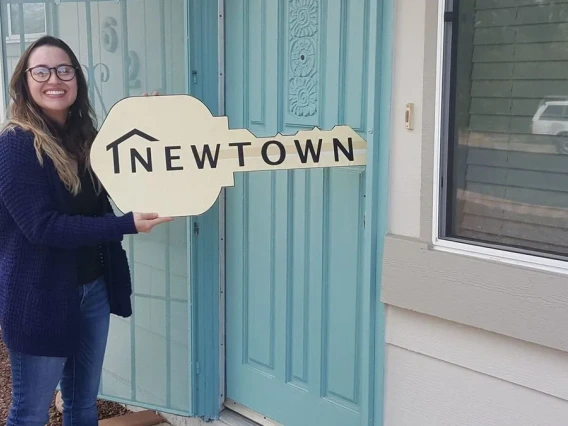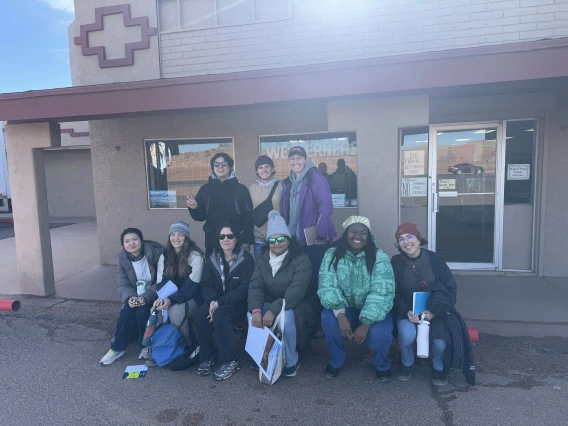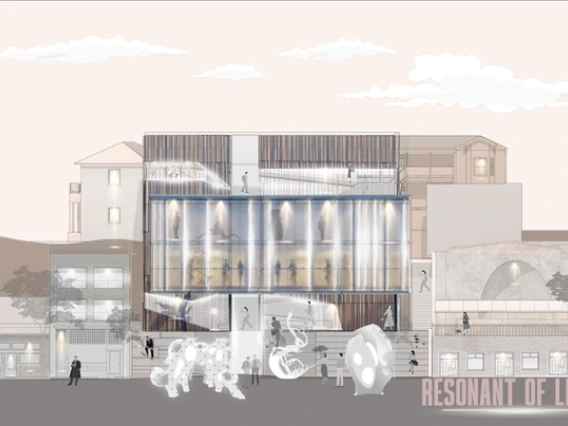A Passion for Sustainable Gardening: Christian Aguilar Murrieta ’23 MLA
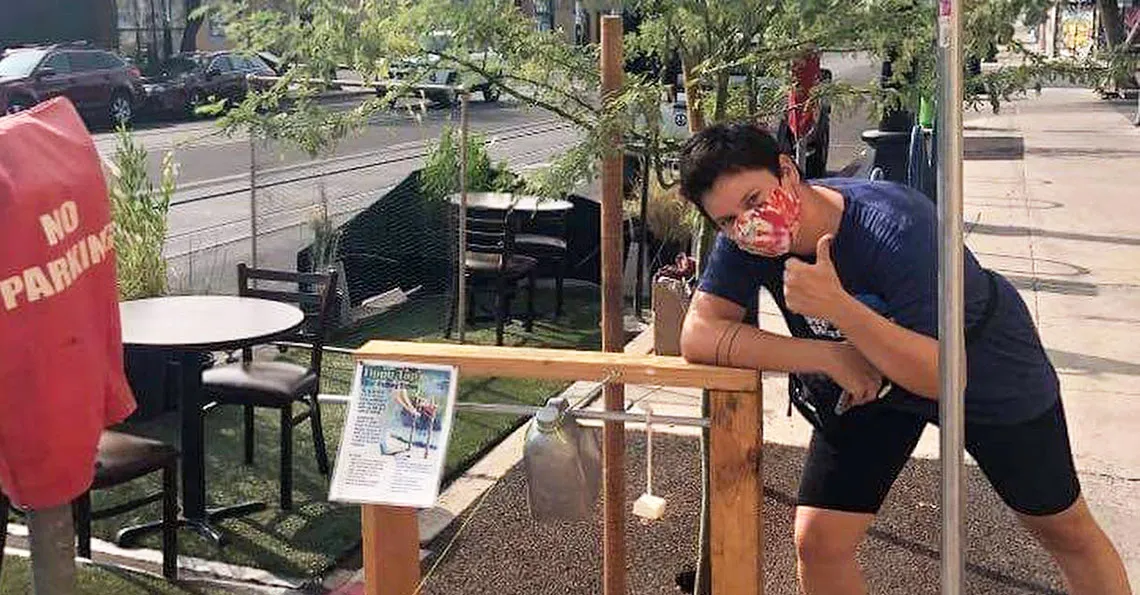
Christian Aguilar Murrieta at Park(ing) Day 2020 on 4th Avenue in Tucson, Arizona.
Seven Questions with Master of Landscape Architecture Student Christian Aguilar Murrieta
"I am most interested in changing the perception of what a garden should be. People tend to think that a garden should be aesthetically pleasing, which is true, but today we have more knowledge about our native plants and their benefits."
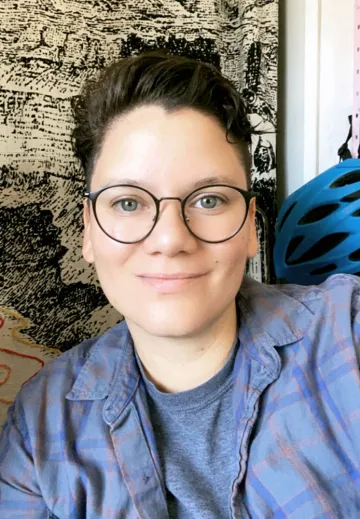
Master of Landscape Architecture student Christian Aguilar Murrieta is from Ciudad Constitucion, Baja California Sur, Mexico, a small city surrounded by agricultural fields and chirinolas (Stenocereus eruca). She moved to Tucson in 2013, after earning her undergraduate degree in sustainable tourism at the Universidad Autonoma de Baja California Sur in La Paz, Mexico and working in Baja California, where extensive travel helped her learn English.
What brought you to the University of Arizona to study landscape architecture?
As an undergraduate, my favorite classes were about ecology, flora and fauna of the Sonoran Desert and alternative processes of development in rural and urban areas. When I moved to Tucson, I met Watershed Management Group and volunteered in their workshops by helping with the transformation of residential gardens to productive gardens. Years later I found out about the MLA program and I decided that I wanted to take my passion for sustainable gardening to the next level.
What interests you most about landscape architecture as a profession?
I am most interested in changing the perception of what a garden should be. People tend to think that a garden should be aesthetically pleasing, which is true, but today we have more knowledge about our native plants and their benefits, so my interest is in changing people’s perception of native plants in the Sonoran Desert region by creating beautiful and productive gardens for humans, nature and knowledge.
What do you like best about the MLA program and College of Architecture, Planning and Landscape Architecture?
I appreciate that we are not required to have a background in architecture or landscape architecture to do enter or succeed in the program. The classes are a comprehensive combination of essential knowledge that prepares you for your career.
What has been your biggest challenges at CAPLA, and how have you overcome those challenges?
I don’t have a background in architecture or design, so I have been challenged by the use of digital media required for landscape design. It's a fun challenge that I take with patience and I’m really grateful that the instructors are always there to help me.
I also must balance having a full-time job with being a full-time student. I’m grateful because of the flexibility my job provides me and it’s been easier to balance classes and work because I’m taking online live classes at the moment.
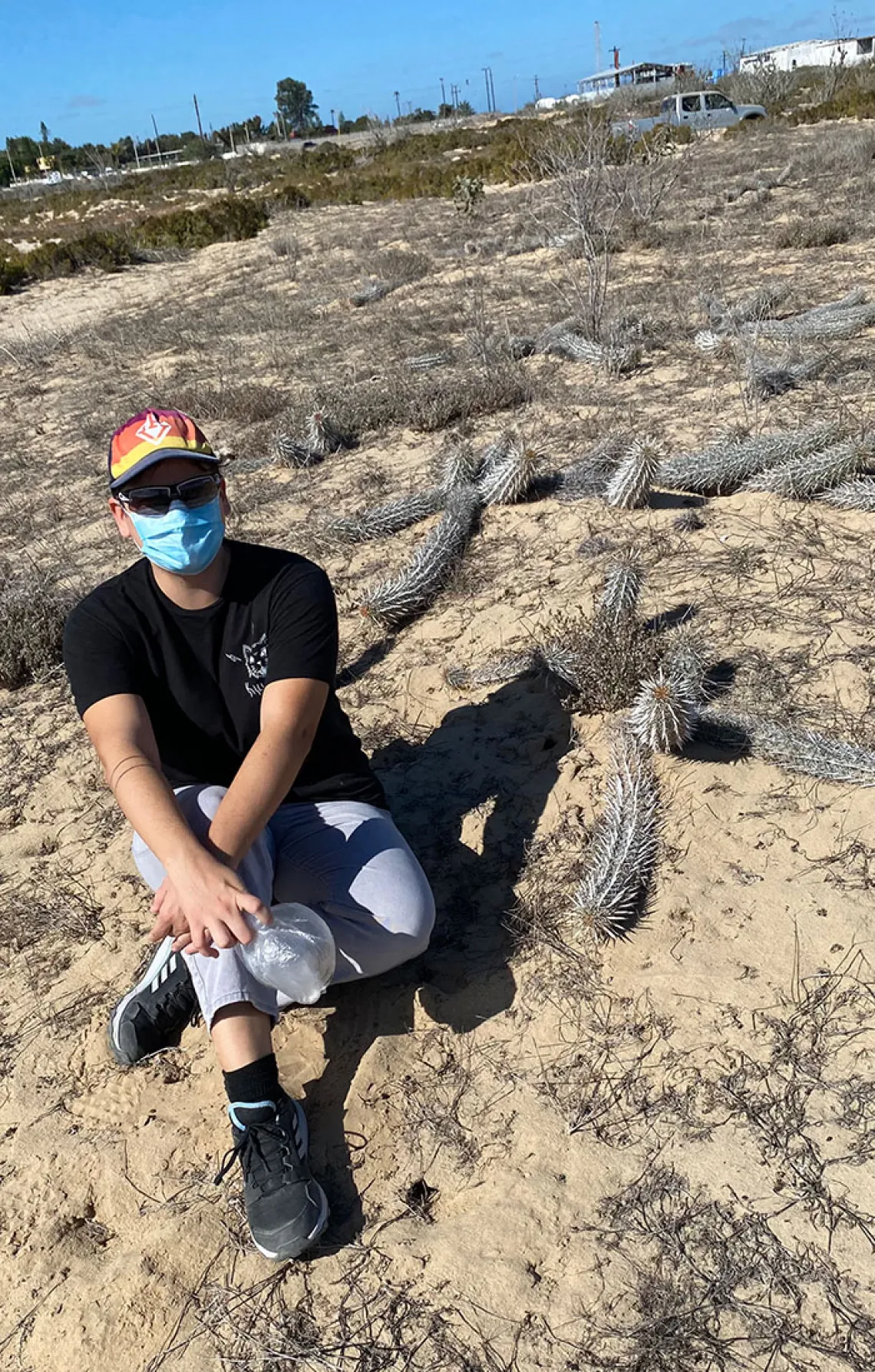
Christian Aguilar Murrieta among the chirinolas (Stenocereus eruca) of Baja California Sur.
What does the CAPLA experience mean for you?
For me, the CAPLA experience means taking the next step in my professional and personal life by learning to do what I like the most.
Tell us about your current work in clinical research and as a volunteer docent.
I’m currently a clinical research coordinator at the University of Arizona and Banner Health with the All of Us Research Program. Although it is not related to MLA, I love my job because it gives me access to work with the Latino communities of Tucson, promoting equity in health research. At the same time, I’m a docent at Watershed Management Group, where I get to translate and interpret material in Spanish, and if COVID-19 allows it this year, I will start teaching classes in person, as well as conducting tours for inspiration in transforming landscapes through rainwater harvesting.
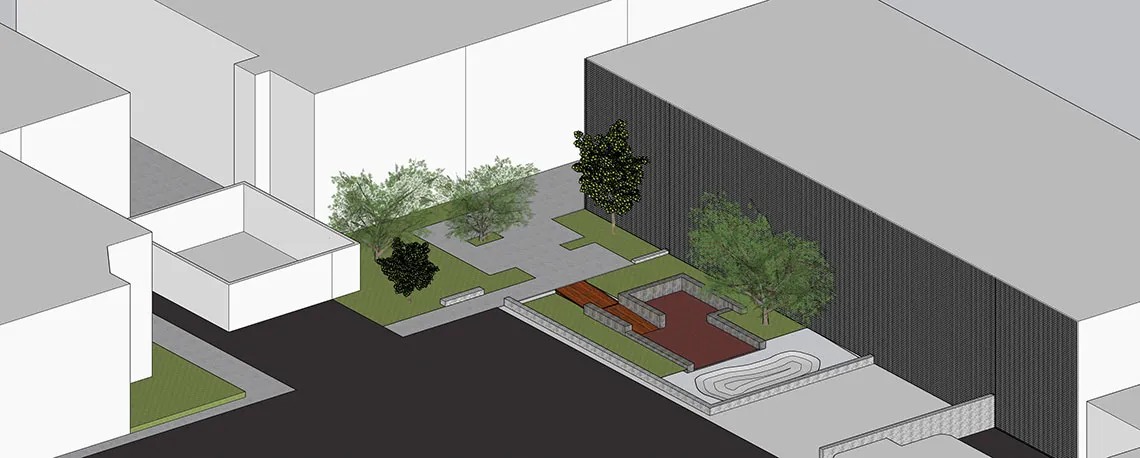
3D SketchUp graphic by Christian Aguilar Murrieta.
What advice do you have for prospective MLA students?
My advice is to learn about the courses and the faculty as you consider applying for the program. I was not sure if I would be a good candidate for the MLA because my background did not focus on landscape architecture, but talking with the program coordinator, students and professors and learning more about the classes made me feel more comfortable and confident to apply. I’m glad I did!
Learn more about the University of Arizona Master of Landscape Architecture program.

